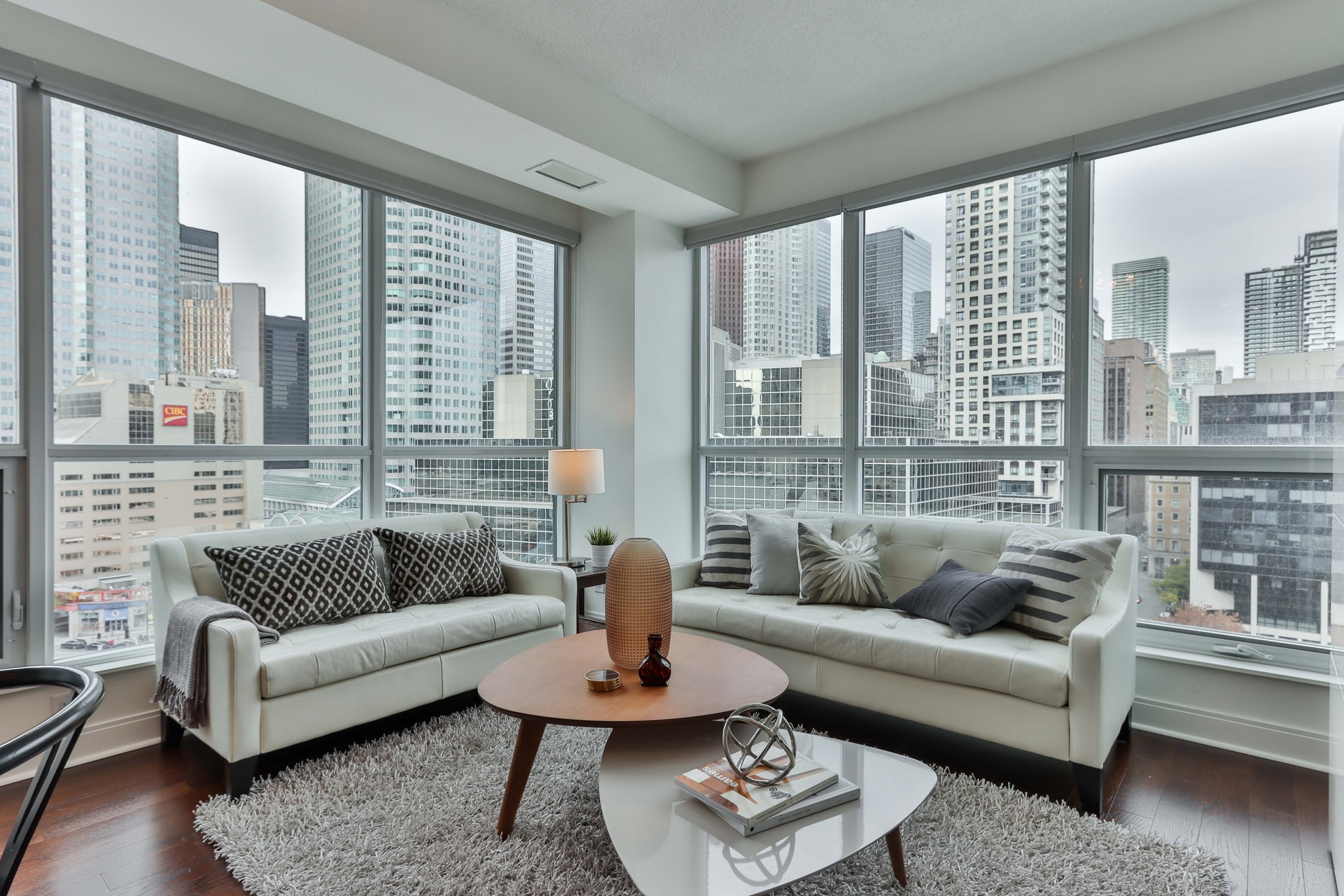GTA Condos to Become the 'Dark Horse' of 2022 as Buyer Attention Set to Shift En Masse
Condos may see a tremendous revival as more people turn away from increasingly unattainable detached homes, say some realtors
 Written By Robert Van Rhijn — As the founder of Strata.ca, Robert is one of Ontario’s leading experts on the GTA condo market. He is also the Broker of Record at Strata.
Written By Robert Van Rhijn — As the founder of Strata.ca, Robert is one of Ontario’s leading experts on the GTA condo market. He is also the Broker of Record at Strata.Given the steady rise of GTA condo prices since the start of the COVID-19 pandemic, hardly anyone would blame you for believing in the appreciation potential of this particular housing segment. And considering the unrelentingly high price of detached housing, it’s also not unreasonable to predict we’re about to witness a mass shift away from the freehold market – further fuelling overall condo values.
For example, the average cost of a Toronto condo for sale is currently $743,278. That’s a far cry from the average of $1,807,983 you must spend to get a detached house, or the $1,432,000 required for a semi-detached home. And that discrepancy could be enough to set up a landscape that overwhelmingly favours condo ownership. And during the past 12 months, condo values across the GTA increased by 16%. Currently, the average cost per square foot (PSF) is sitting at about $825, up from $714 PSF one year prior.
Unsurprisingly though, condos in the neighbouring suburbs saw some of the biggest gains in 2021, dramatically outpacing Toronto:
Markham: +26%
Brampton: +24%
Vaughan: +23%
Pickering: +16%
Toronto: +12%
The disproportion, however, is likely due to a lack of affordability in places like the downtown core, and remote working arrangements that continue to influence purchasing decisions.
‘Dark horse’ to see unexpected gains
It goes without saying that the real estate landscape of 2021 was marred by soaring property values and stories of ‘bidding wars’, ultimately leading to buyer fatigue. For those dreaming of owning a detached home – the ongoing chasm between available listings and active buyers led to severe scarcity, triggering multiple offer scenarios seemingly at every turn.
But the frenzied and unattainable nature of the freehold market is exactly why GTA real estate is poised to do an about-face, according to Strata.ca broker, Cliff Liu.
“Throughout this pandemic, detached home values have sprinted like a hare, while condos have moved like a tortoise,” he says. “But condos will likely become the dark horse in 2022, especially among those who missed out last year.”
Like Liu, many realtors believe buyer focus is set to shift en masse towards condominiums, which could trigger a tremendous revival as detached housing becomes further out of reach. This will be especially true for townhouse condos, which have jumped in value by 25% in the past 12 months alone.
“Without a doubt, people will continue striving for bigger units that feel like a bungalow in the sky,” predicts Liu, who thinks this is because socializing space is no longer seen as existing solely outside the home.
“With ongoing restaurant and nightclub restrictions, people understandably now want that social space inside their homes,” Liu explains. “And this means a 500-square-foot condo will no longer do.”
This doesn’t mean, however, that smaller units will be undesirable. They will still be an attractive option for investors or perhaps the 411,000 new permanent residents Canada expects to welcome this year.
Condo size, not affordability, to dominate purchasing decisions

So where does all this leave the average Ontario homebuyer – particularly first-timers and young families who want a shot at ownership, but don’t want to live in cramped units?
According to some agents, buyers turning to the ‘dark horse’ condo market must first make an important decision that usually has nothing to do with affordability.
“Do they want to purchase something older but bigger, versus something newer but smaller?,” asks Strata.ca realtor, Galina Sheveleva, who says many of her clients struggle with this question.
This is because, as Liu pointed out earlier, people’s perceptions around space have shifted over the past two years.
“Older condos tend to have better layouts and generally more square footage, although hallways and lobbies can be quite outdated,” explains Sheveleva. “Newer buildings usually offer better finishes and taller ceiling heights, but I’ve seen some very awkward floor plans there that’ll make you scratch your head.”
Whether condo size will end up dominating purchasing decisions this year remains to be seen. But what is certain is that real estate prices in the GTA will continue to rise. The government is just not doing enough to narrow the gap between shrinking supply and an ever-growing base of active buyers.
Ontario not only needs more housing, but better policies – such as making it illegal to leave investment properties vacant. A 1% tax tax won’t make a dent.
As for that ‘Dark Horse’? Well if in doubt, we can refer to the condo market’s infamous rise in 2017. This is the same year when the price of detached housing literally fell off a cliff, while condo prices continued to peak.
“Detached homes and condominiums are like yin and yang,” says Liu. “They tend to move cyclically, always chasing each other to find that new balance.”
Starting your search for a new home? Click on any of these links to access active listings, sold listings or contact a Strata agent.
For any questions about this article or media inquires, please email media@strata.ca
